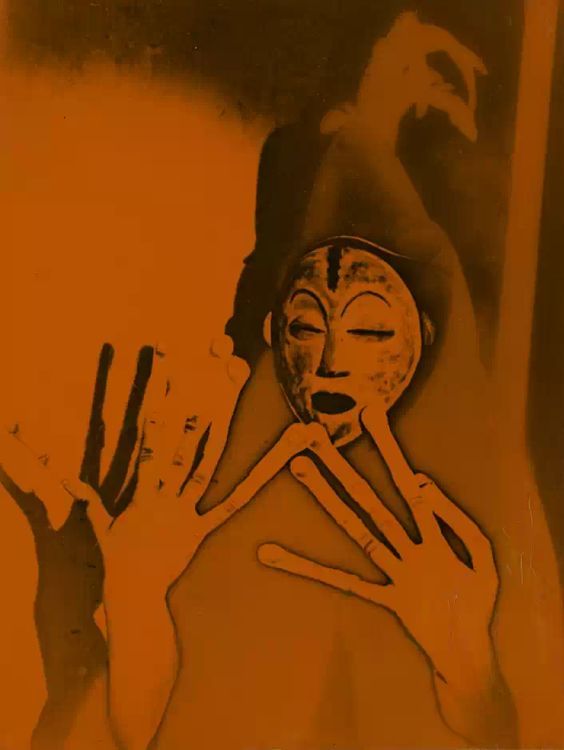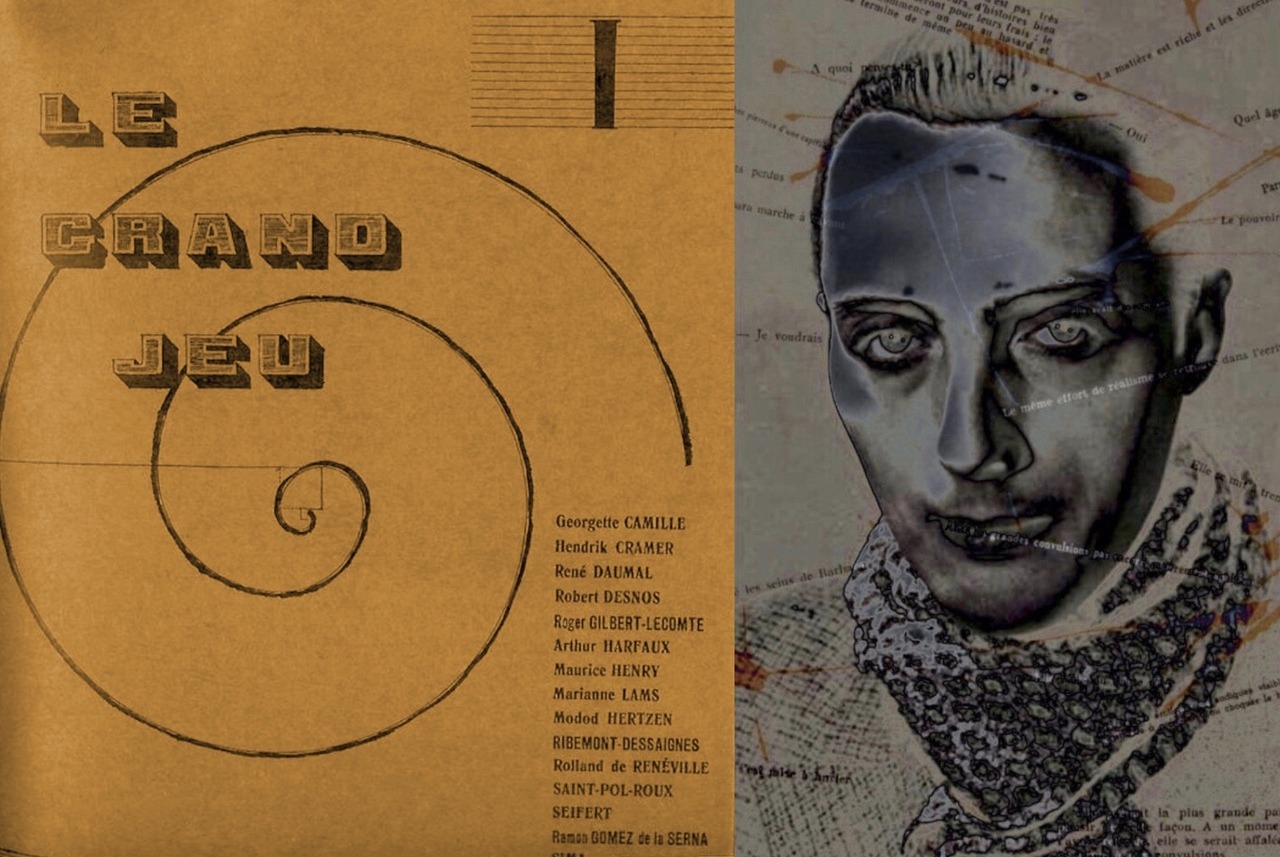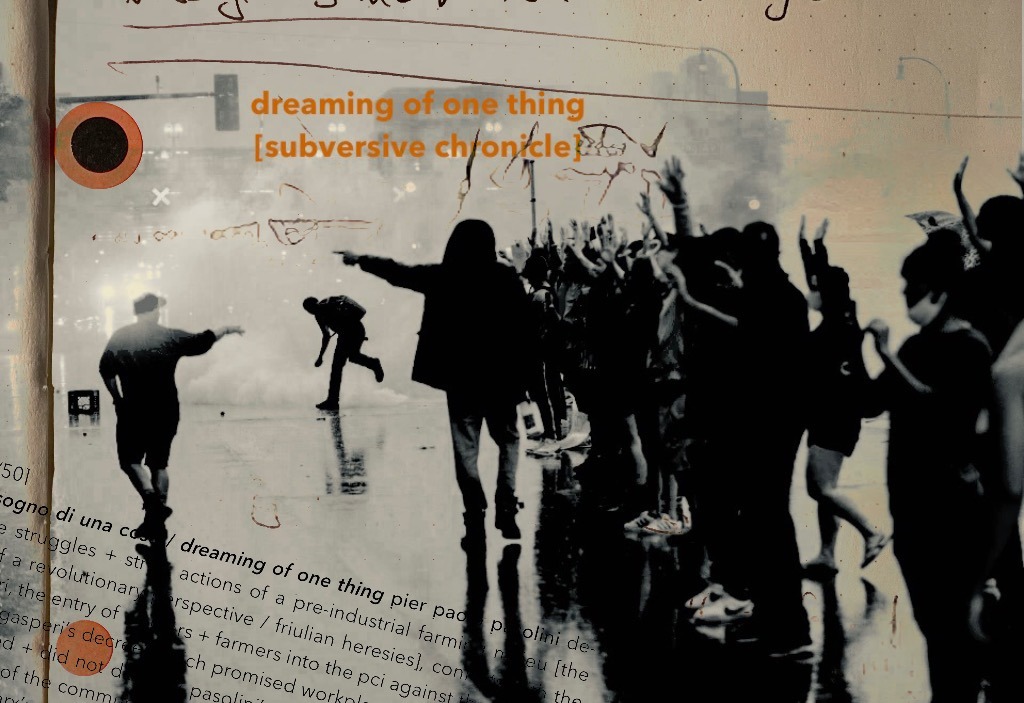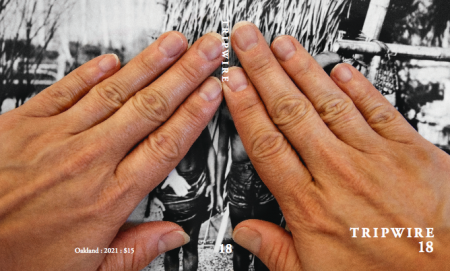On December 31, 1943 Robert Gilbert-Lecomte died at age 36 in a Paris hospital from tetanus caused by a dirty needle. His possessions were all in one small briefcase in the room where he had been living, the back room of a working-class bar whose owner Mme. Firmat had taken him in three years before out of kindness. To Lecomte’s friend the playwright Arthur Adamov she gave the briefcase. It was filled with letters, prose writings, and a hundred poems. A morphine addict, Lecomte had been jabbing the needle into a high muscle through a pair of dirty trousers. Born in Reims, France in 1907, Lecomte was the co-founder, with René Daumal and Roger Vailland, of the literary and artistic movement Le Grand Jeu. Three issues of the group’s magazine, Le Grand Jeu, appeared between 1928 and 1930. The Surrealist reacted too Le Grand Jeu with hostility. The group fell apart in 1932. Central to Le Grand Jeu was a vision of the unity of everything in the universe that resulted from experiments with carbon tetrachloride performed by Lecomte with his friend René Daumal when they were teenagers. Daumal later wrote about the experience in his essay, “A Fundament Experiment.” Lecomte defined its essence as “the impersonal instant of eternity in emptiness." This glimpse of eternity in the void was to send Daumal to Hinduism, the study of Yoga philosophy, and Sanskrit. It sent Lecomte on an exploration of what he called a "metaphysics of absence." In imagination he returned to a pre-natal state, "a wondrous prior existence."
In 1933 Lecomte published a volume titled La Vie L’Amour La Morte le Vide et le Vent (Life Love Death Void and Wind), which went unnoticed by the press, save for a review by Antonin Artaud in the Nouvelle Revue Francaise. Over the rest of his life, Lecomte published here and there in literary magazines. His only other book was a tiny volume, Le Miroir Noir (Black Mirror), privately printed in alimited edition in 1938. The last half-dozen poems appearing in the present volume appeared in Le Miroir Noir. Lecomte never explained what he meant by the title. He may have been thinking of the obsidian mirrors of the Aztecs, or perhaps of the black mirrors some painters are said to use to study tonal relationships of colors seen in nature, a kind of mirror that his contemporary Francis Ponge was soon to compare to a summer sky in which he imagined he could glimpse the blackness of interstellar space. No doubt Lecomte was also thinking of how own exploration in Le Miroir Noir of the mind’s dark side, "the dark on the blind side of mirrors.” In later years Lecomte lived on and off with a German Jewish refugee named Ruth Kronenberg (1) whom he had met on her arrival in Paris in 1934. She was arrested in 1940 after the Fall of France, but got out of jail, obtained false I.D., and emigrated to the Unoccupied Zone in hope of finding safety there. In 1942 she was arrested by the collaborationist military near Carcassone, transported to the concentration camp of Drancy in the German-occupied North, and from there to Auschwitz, where she died. One of Lecomte’s last publications in his lifetime was in the nature of a poignant afterthought: a twelve-line poem, “Vacancy in glass,” which he retitled “Palace of the void” for publication in the Nouvelle Revue Française, where it appeared shortly after Ruth was deported. It seems possible that the retitled poem in its new context may reflect this personal loss. Lecomte himself never left Paris after the early 1930s. His life was a succession of jail and hospital confinements. Very few old friends would have anything to do with him during the last years. Over the generation following his death, Lecomte’s oeuvre acquired the status of an underground classic. His friend Adamov published a selection of his poetry, and leading French literary magazines devoted space to him. The complete works were issued in three volumes during the 1970’s by Gallimard. They consist of approximately 100 poems, a booklength collection of prose texts, including essays setting forth the principles of the Grand Jeu movement and various pieces of literary criticism, and, finally, a volume of letters.
___
(1) Ruth Kronenberg
Certain facts about the life of the French writer Roger Gilbert-Lecomte also come to bear, indirectly but pertinently, on her story. In 1965, Modiano went to see a doctor named Jean Puyaubert, thinking that he had pleurisy and that the physician could give him a certificate enabling him to avoid military service. He learns several years later that when Gilbert-Lecomte was exactly his age, Puyaubert had given him the same certificate. “[Gilbert-Lecomte] had dragged out his last years in Paris, under the Occupation,” writes Modiano. “In July 1942, his friend, Ruth Kronenberg, was arrested in the Free Zone, on her return from the seaside at Collioure. She was then deported in the transport of 11 September, a week before Dora Bruder.” By writing about these and a few other people (about whom just a little more is known than about Dora), Modiano helps us imagine what she might have been like. He concludes: “So many friends whom I never knew disappeared in 1945, the year I was born.” (by John Taylor / The Arts Fuse / “The Sad Tenderness of Patrick Modiano’s ‘Dora Bruder)
—David Rattray (from Black Mirror: The Selected Poems of Roger Gilbert-Lecomte, 1991) Copyright ©1991 by David Rattray BOOKS OF POETRY La Vie l'Amour la Mort le Vide et le Vent (Paris: Editions des Cahiers Libres [Denoël], 1933); Le Miroir Noir (Paris: Editions Sagesse [chez Fernard Marc], 1938); Sacre et Massacre de l'Amour (Paris: Editions Paul Facchetti, 1960); Oeuvres complètes. Poésies, Volume 2, ed. by Jean Bollery (Paris: Editions Gallimard, 1977) ENGLISH LANGUAGE TRANSLATIONS Black Mirror: The Selected Poems of Roger Gilbert-Lecomte, trans. by David Rattray (Barrytown, New York: Station Hill, 1991), The Book is a Ghost; Thoughts & Paroxysms for Going Beyond, trans. by Michael Tweed (Solar Luxuriance 2015)
_________________
© Wols; Roger Gilberte-Lecomte (1907-1943)

![THE ALCHEMY OF THE EYE: CINEMA, FORM OF THE MIND; BY ROGER GILBERT-LECOMTE
The following text was originally published in a special edition of Les Cahiers Jaunes dedicated to film theory [Les Cahiers Jaunes no. 4 (1933), spécial “Cinéma 33”]. Its...](https://64.media.tumblr.com/87103c115ba71a343c2f7fbb4cb52ac4/tumblr_p1n8kgNfsT1wuyfqeo1_1280.jpg)







![Interview with Pierre Guyotat [Pierre Testard / Gwénaël Pouliquen, April 2020]](https://64.media.tumblr.com/377db6ab1d8cc1b6d1090be43eefd495/2c1cc9b6e261e847-d1/s640x960/122eaa9f3f7b1d2af37d5cdd2b439f48696cd5c7.jpg)